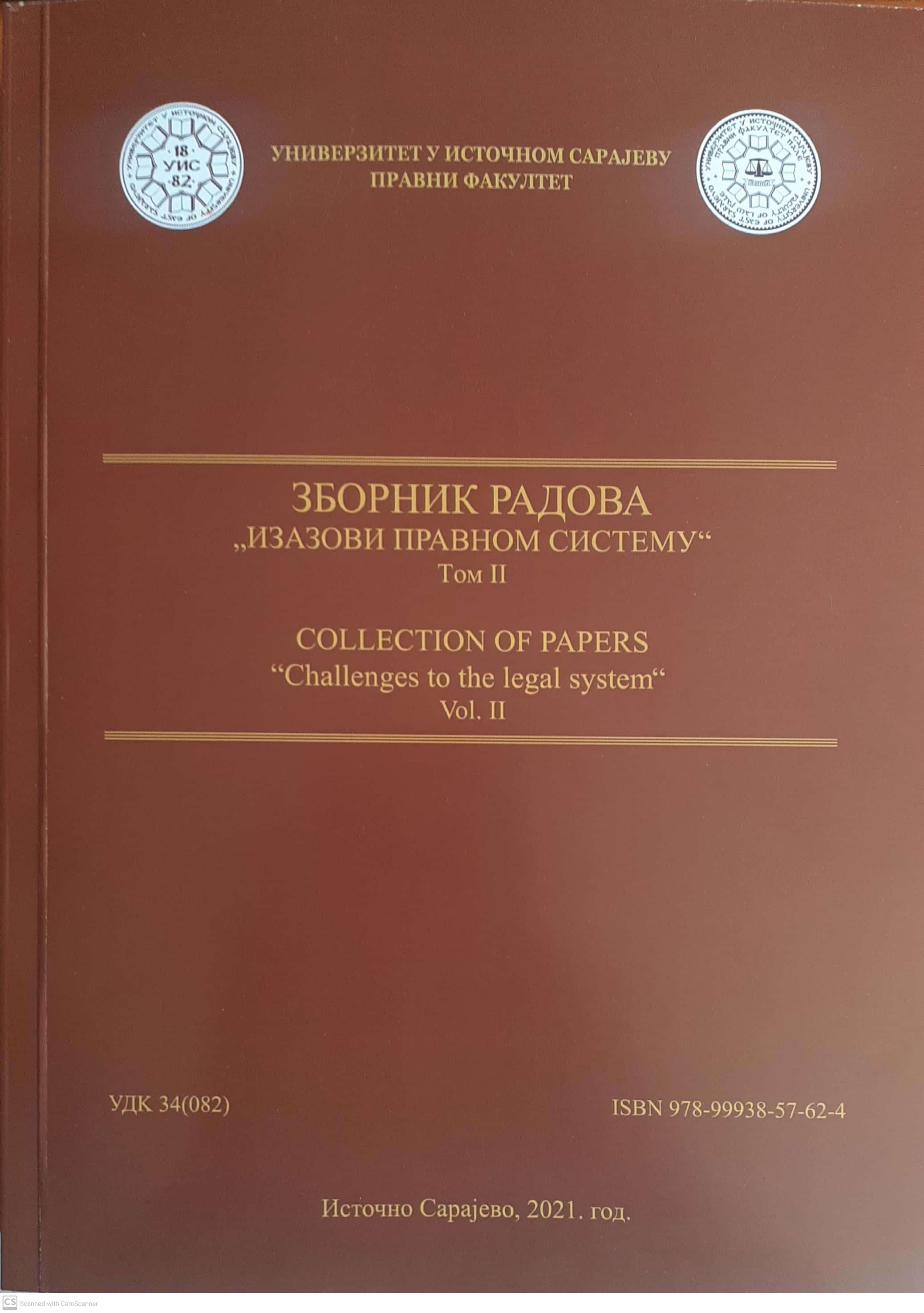Повратак одузете црквене имовине, чин правде и огромна добит за румунско друштво
Retrocession of Confiscated Church Property, an Act of Justice and Enormous Benefit for the Romanian Society
Author(s): Joakim Beženariu
Subject(s): Social Sciences, Law, Constitution, Jurisprudence
Published by: Правни факултет Универзитета у Источном Сарајеву
Keywords: Secularization; Confiscations; Retro-cession; Monastic estates; Orthodox Church; State; Patriarchate;
Summary/Abstract: This paper is designed along this line: the retro-cession of confiscated Church property is an act of justice and an enormous benefit for the Romanian society, since the Church carries out a very important social, educational and missionary work. Almost 1 million Romanians benefit from the social work of the Church! The Church faced a lot of difficulties in carrying out its work, difficulties which resulted both from the implementation of the Law on the secularization of monastic estates and from the confiscations that were effected during the atheist communist regime. While the properties of the monasteries both dedicated and not dedicated to the Holy Places were confiscated by the Romanian State in a non-discriminatory manner and without compensatory measures under the Law on the secularization of monastic estates of 1863, after 1948, the communist regime confiscated agricultural and forestland, as well as church buildings, except for the places of worship. After both stages, the Orthodox parishes and monasteries could no longer sustain themselves and could no longer carry out their multiple social, educational and missionary work. This justified the assumption by the Romanian State,in 1864 and 1893, of the obligation of compensatory measures, namely of making a modest contribution to the remuneration of the staff of religious denominations and of providing financial support for the maintenance and activities of church units. Starting with 1990, the Romanian Orthodox Church regained the possibility of freely carrying out its mission and of conducting an extensive social-philanthropic and cultural-educational work for the Romanian society. Therefore, there are over 670 social, medical and educational institutions currently operating within the Romanian Patriarchate and there are over 750 pastoral-missionary, social-charitable and cultural-educational projects and programs being implemented for the Romanian communities within the country and, in recent years, abroad.In order to maintain, consolidate and restore the places of worship,mostly historical monuments in the national cultural heritage, and to support the Church’s many activities conducted in favor of the Romanian society,it is vital to return Church property confiscated by the former communist regime in Romania. The properties that are returned will not be sold to foreigners, but will be used for the establishment of educational, social-charitable, medical and cultural institutions. The Romanian State did not return to the Church its property confiscated during the secularization of church estates by Prince Alexandru Ioan Cuza, and the Church property abusively confiscated by the communist regime (buildings, agricultural lands, forests)was returned only in part in the last 20 years. In conclusion, the retro-cession of Church properties confiscated by the communist regime is an act of justice and, at the same time, of support to the Church’s many social activities aimed at helping the poor and disadvantaged, as well as children and young people in schools. In any case, the property returned to the Romanian Orthodox Church will not be alienated, but will help the Romanians, because justice and generosity are essential components of human dignity, both individually and socially. Therefore, the current relations between the Romanian State and the cults largely reflect the heritage of the last 150 years of national history,originating in the reforms of Prince Alexandru Ioan Cuza, which aimed at modernizing Romania, as well as the assumption by the State of the partial compensation for the losses suffered by the Church following the secularization of its estates. The communist regime deprived the Church of everything else it owned, except the places of worship, but maintained forms of financial support from the State for all religious denominations, both in terms of remuneration for church staff and in terms of restoration, conservation and maintenance of places of worship, particularly historical monuments. Today, the Romanian State financially supports only part of the salaries of church staff, and the maintenance, consolidation, restoration and repair of places of worship and other church buildings, which ensure the active presence of the Church in society and the presence of God in people’s hearts, is left mostly to the responsibility of the communities of believers, who are also affected by the economic-financial crisis that the contemporary society is facing.
Book: Зборник радова "Изазови правном систему" Том II
- Page Range: 408-420
- Page Count: 13
- Publication Year: 2021
- Language: Serbian
- Content File-PDF

